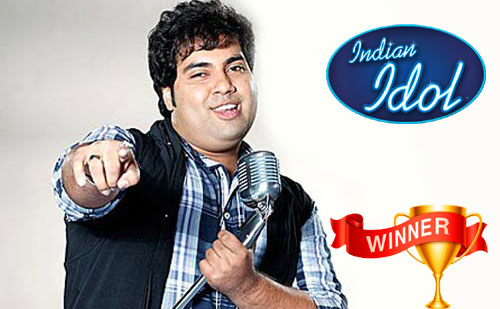The COVID Working Group chaired by Dr N K Arora had recommended extension of the gap between the first and second doses of COVISHIELD vaccine to 12-16 weeks. This has been accepted by Government of India on 13th May 2021.
Government of India has communicated this change to States and UTs. The CoWIN digital portal has also been reconfigured to reflect this extension of interval for two doses of Covishield to 12-16 weeks.
However, there have been reports in s a section of the media suggesting that people who had pre-booked their appointment for the second dose in less than 84 days on CoWIN are being turned back from vaccination centres without getting the second dose of Covishield.
It is clarified that the requisite changes have now been done in the CoWIN digital portal. As a result, further online or on-site appointments will not be possible if the period after 1st dose date for a beneficiary is less than 84 days.
Additionally, already booked online appointments for 2nd dose of Covishield will remain valid and are not being cancelled by COWIN. Further, the beneficiaries are advised to reschedule their appointments for a later date beyond the 84th day from the date of 1st dose vaccination.
The Union Government has reiterated to the States and UTs that the online appointments booked for 2nd dose of COVISHELD prior to this change of the interval between the two doses of Covishield, must be honoured.
The Union Health Ministry has advised the Sates/UTs that the field staff may be instructed that, if such beneficiaries do come for vaccination, the second Covishield dose must be administered and they must not be turned away. They have also been advised to undertake awareness activities to inform the beneficiaries about this change.
Sources https://www.pib.gov.in/PressReleasePage.aspx?PRID=1719143
Indian Idol is a singing reality show which was first aired in the year 2004. The show enables talented singers from all over the country to showcase their talent before celebrity judges and the common public of the country. The show is highly popular among the audience. The winner bags a contract for a music album along with prize money and a car.
There have been 10 seasons of Indian Idol starting from 2004, including two seasons of Indian Idol Junior for kids. Here is the list of winners of all the seasons.
Abhijeet Sawant- Indian Idol Winner of Season 1 (2004-05)

Abhijeet Sawant won the first season of Indian Idol. He became a playback singer and sang eleven songs between 2006 and 2017 including playback singing for the movie “Aashiq Banaya Aapne.” He was placed 3rd in the Asian Idol contest held in Jakarta. He is working on a reality show at present.
Sandeep Acharya- Indian Idol Winner of Season 2 (2005-06)

Sandeep Acharya won the second season of Indian Idol. He could not make it big in the music industry after winning the contest. Unfortunately, he passed away due to jaundice on 15th December 2015.
Prashant Tamang- Indian Idol Winner of Season 3 (2007)

Prashant Tamang has crowned Indian Idol for the third season in 2007. Tamang launched four music albums in the period between 2007 and 2016. He has also acted in six Nepali films, which did not fare well in the box office.
Sourabhee Debbarma- Indian Idol Winner of Season 4 (2008-09)

Sourabhee Debbarma was the first female to win the title of Indian Idol. She has been fairly active in the music industry and works with many major music companies. She has also performed in many live concerts in India and abroad.
Sreerama Chandra Mynampati- Indian Idol Winner of Season 5 (2010)

Sreeramchandra Myanampat won the season 5 of Indian Idol. He has been successful in the music industry and has done playback singing for Hindi, Tamil, Telugu, Marathi, and Kannada films. Notably, he was the playback singer for the movie “MS Dhoni- The Untold Story.” Myanampat is the recipient of the Mangeshkar Award from the Andhra Pradesh Government.
Vipul Mehta- Indian Idol Winner of Season 6 (2012)

Vipul Mehta bagged the title of Indian Idol season 6. His first music album was “Hello Namaste Sat Sri Akal.” He has also sung in singles such as “Vande Mataram” and “Rowaan Mein.” He participated in Amul Star Voice of India Season 2. He also has a YouTube channel.
Anjana Padmanabhan- Indian Idol Winner of Season 7 (2013)

Anjana Padmanabhan became the first junior Indian Idol after winning the title in 2013. She also participated in Airtel Super Singer Junior 3. Currently, she stays in Bengaluru.
Ananya Sritam Nanda- Indian Idol Winner of Season 8 (2015)

Ananya Sritam Nanda is the second junior Indian Idol. She has sung a number of songs post her win, including for major films like “MS Dhoni” and “Baby.” She is expected to make it big in the music industry in the coming years.
LV Revanth- Indian Idol Winner of Season 9 (2017)

LV Revanth won the Indian Idol season 9. He now has more than 200 songs in Hindi, Kannada, and Telugu under his belt. He is particularly popular in the Telugu film industry. He is also the winner of many other contests such as Superstar of the South, Spicy Singer, and Rock Star.
Salman Ali- Indian Idol Winner of Season 10 (2018)

Salman Ali won season 10 of Indian Idol. His powerful performance throughout the contest won him the title along with Rs. 25 lakh cash prize and a Datsun car.
Sunny Hindustani – Indian Idol Winner of Season 11 (2019-20)
Sunny Hindustani from Bhatinda, Punjab won the title of Indian Idol winner for the season 11. He belongs to poor family when he appeared for the show, but his melodious voice won hearts of thousands of Indians and made him the winner of the show. We wish him all the best for future success.

How to Tell Where You Stand in the Piano Playing Skill?
Whether you live in East Northport or somewhere else, it can be difficult to fightan urgeto assess the level ofone’sskill and how much time it takes to master piano playing. While the speed of picking up any new talent is a subjective thing, the level of your knowledge and competence is still easy to predict. It is also necessary tohave awareness about it to determine one's progress in learning. As such, you can classify piano playing skills into three main categories – elementary, intermediate, and advanced for ease of understanding. Each class can also include sublevels. So, let's explore them once.
Beginners
When searching 'piano lessons near me East Northport' you came across a reputable music school and took admission. You can call it the first stage of learning, where you may not have any idea about many things in piano. You joined a music class out of fondness for the instrument or after attending a piano concert as an audience. At this level, the concepts of scales, arpeggio, rhythm, and notation would be new. In addition, you would have to develop sight-reading ability. You may have selected a musical piece, considering it would not be so challenging. However, it turned out to be tough. Besides, you can find difficulty with hand movement, chords, syncopation, and so on.
However, as you train, you can find yourself using both hands together when playing the piano. You start developing rhythm and beats. You also become familiar with bass and treble clef. From dynamics to articulations, you learn to capture different details. It can be your early beginner’s level. When you enter an advanced beginner’s stage, you come across topics like major and minor chords, arpeggio, and scales. You find yourself attempting complex rhythms under the supervision of your music teacher.
Intermediate
At this level, you learn to use your muscle memory to play major and minor scales, arpeggios, etc., at a reasonable speed. You can also notice animprovement in reading songs. However, complex pieces can still be challenging to manage. You can think of four-part harmony, for example. At the same time, you can also get to explore Trills, Voicing, Sonata, etc.
Again, you can divide this level into two parts, early and late. When you are at the early stage of intermediate level in East Northport, you can expect to be comfortable with scales, arpeggios, harmonics, and melodic minor chords. Your left- and right-hand playing becomes much better. Your awareness of music theory and notation can also increase. However, some students avoid music theory. You have to reflect on what you choose and what you avoid for a fair assessment. Technique and musicality can be reasonably well at this level.
You can find yourself playing almost all the songs in your repertoire at the latter stage. In addition, you can also be more comfortable with sight-reading. Thus, from technique to musicality, everything can feel more enhanced in terms of skills.
Advanced
It will not be a surprise if you already know most of the things talked about in the above paragraphs by now. When you reach a level where most of those nuances have become a part of your daily practice for some time, you can tell yourself that you are an advanced level pianist. You can play all the songs in the repertoire. Your sight reading skills may also be stronger than before. You know to play all the keys. From techniques to musicality to rhythm, you have gained tremendous control.
Nevertheless, it would be best if you recognized that these are general views. Piano skills can be a subjective thing for a lot of people, depending on their goals. As hinted at previously, some students skip music theory because they concentrate more on learning and playing their favorite songs. They don't aim for in-depth knowledge. Hence, the criteria of assessment for them can differ.
To be precise, there is no specific rule to point out the student's level of skills. Every country and region can also have different standards for the piano playing skill set of a person. But if you wish to make a difference in your training, join a reputable school in East Northport, a place where you get exposure to recitals and concerts too. Learning at such a music school can be advantageous as those events help you refine your playing skills and confidence. In addition, you receive real-time feedback from experts in this field. It will not be wrong to say that you get a direction about where you are heading.
If you start participating in music festivals, you can gradually plan to take up piano as a career. You can choose to teach students or become a famous musician yourself. Suddenly, you can find a purpose behind your love affair with the instrument and enjoy it more.
Contents shared by Jiggy Clark

Gurugram University is a Haryana State Government University at Gurugram (Gurgaon) Haryana. Online application in the prescribed format is invited for the following Teaching Faculty Sarkari Naukri vacancy posts in Gurugram University, Gurugram (Haryana) (Advt. No. 4-5-6/2021).
Gurugram University Faculty Teaching Recruitment 2021 Vacancy
Advertisement No. – 04/2021 - The Last date to apply:27/05/2021 up to 04:00 PM
Assistant Professor: 03 vacancies in various subjects/disciplines, Pay Scale: Academic Pay Level-10 ₹57500-17500/-
Advertisement No. – 05/2021 - The last date to apply: 31/05/2021 up to 04:00 PM
Assistant Professor: 03 vacancies in Dept. of Engineering & Technology., Pay Scale: Academic Pay Level-10 ₹57500-17500/-
Advertisement No. – 06/2021 - The last date to apply: 31/05/2021 up to 04:00 PM
Associate Professor: 04 vacancies in various subjects/disciplines, Pay Scale: Academic Pay Level-13A starting ₹131400/-
Application Fee

Application processing fee of ₹1000/- (₹250/- for SC/BC/EWS candidates of Haryana only) shall also be deposited through demand draft in favour of “Finance Officer, Gurugram University, Gurugram” payable at Gurugram. The women candidates of the Haryana domicile are to pay 50% of the requisite fee. The PWD/ESM candidates are exempted from payment of a requisite fee.
Gurugram University Faculty Vacancy Recruitment 2021
How to Apply Gurugram University Faculty Teaching Vacancy 2021?
Suitable and desirous candidates should apply in the prescribed recruitment proforma for Gurugram University Faculty Vacancy recruitment 2021 on or before the last date indicated against the advertisement number provided above to The Assistant Registrar (Estt), Gurugram University, Mayfield Garden, Sector-51, Gurugram (Haryana)-122018
Details and application format
Please visit https://gurugramuniversity.ac.in/RECRUITMENT/ for more details and application format.
PM chaired a high-level meeting to discuss the Covid and vaccination related situation in the country. Officials briefed the PM on the current Covid related situation in the country. PM was briefed that testing has gone up rapidly in the country, from around 50 lakh tests per week in early March to around 1.3 crore tests per week now. They also informed the PM about the gradually decreasing test positivity rate and increasing recovery rate. It was discussed that cases which had gone over 4 lakh cases per day are now coming down as a result of the efforts by healthcare workers, state governments and central government.
Officials gave a detailed presentation on the state & district level situation of Covid, testing, oxygen availability, healthcare infrastructure, vaccination roadmap.
PM said that localised containment strategies are the need of the hour specially for states where TPR in districts is high. The Prime Minister instructed that testing needs to be scaled up further, with use of both RT PCR and Rapid Tests, especially in areas with high test positivity rates. PM said that states should be encouraged to report their numbers transparently without any pressure of high numbers showing adversely on their efforts. PM asked for augmentation of healthcare resources in rural areas to focus on door to door testing & surveillance. He also spoke about empowering ASHA & Anganwadi workers with all necessary tools. PM asked for guidelines to be made available in easy language along with illustrations for home isolation and treatment in rural areas.
The Prime Minister directed that a distribution plan for ensuring oxygen supply in rural areas should be worked out, including through provision of Oxygen Concentrators. The Prime Minister added that necessary training should be provided to health workers in the operation of such equipment, and power supply should be ensured for smooth operation of such medical devices.
The Prime Minister took serious note of some reports about ventilators lying unutilized in storage in some states and directed that an immediate audit of installation and operation of ventilators provided by the Central Government should be carried out. The Prime Minister added that refresher training for properly operating ventilators should be provided to healthcare workers if necessary.
PM said that India’s fight against Covid has been guided throughout by scientists and subject experts and will continue being guided by them.
Officials briefed PM about the vaccination process and the state-wise coverage of 45+ population. The roadmap for future vaccine availability was also discussed. He directed officials to work closely with states to ramp up the speed of vaccination.
Sources https://www.pib.gov.in/PressReleasePage.aspx?PRID=1718787




0 Comments